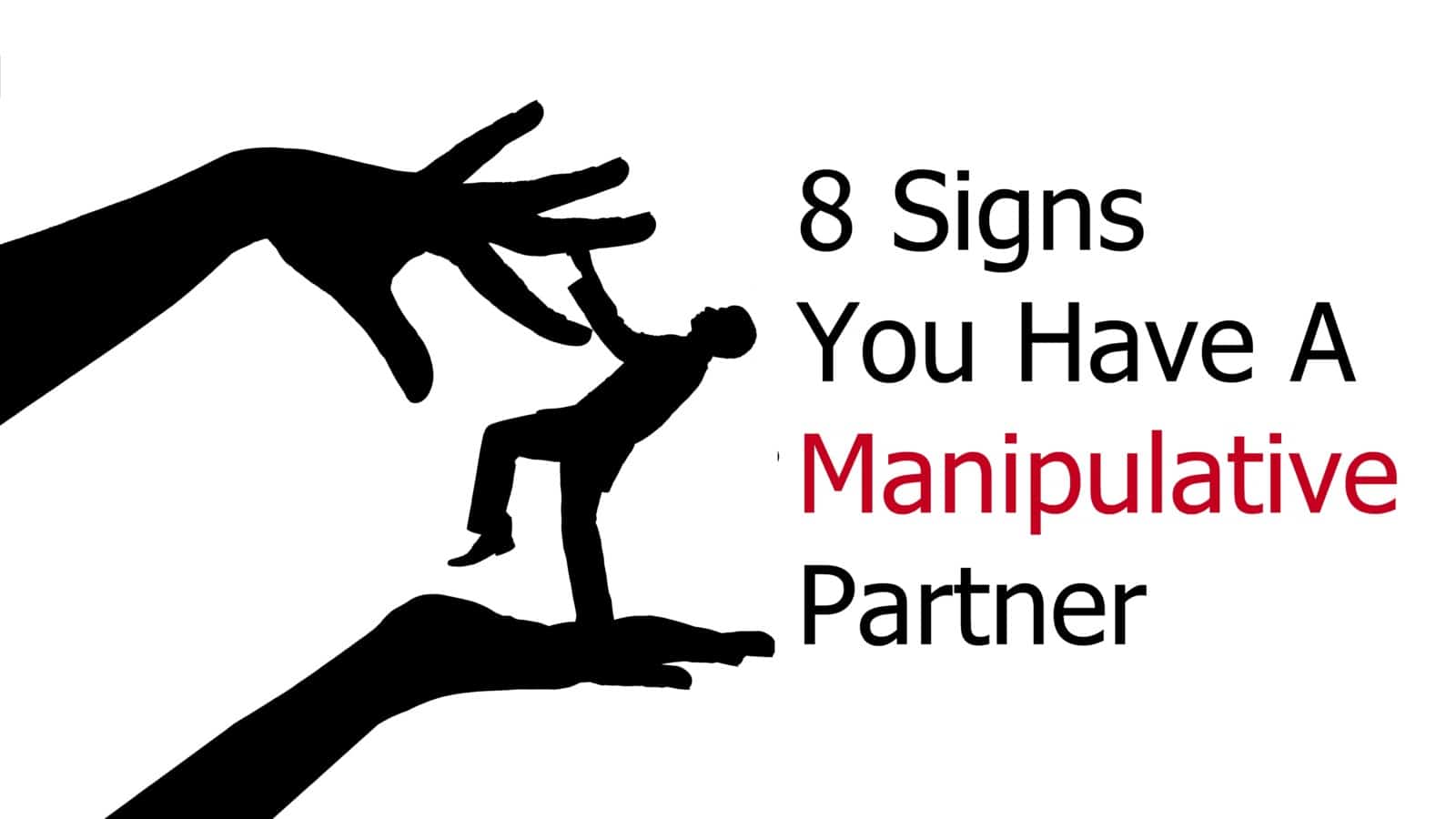Manipulative people are everywhere.
And when we say everywhere, we mean everywhere. Is this fact saddening? Yes, but it can also be empowering.
The knowledge and acceptance of the omnipresence of manipulation is empowering because you’re less likely to be played “as a fool.”
Perhaps there is no other scenario wherein detecting manipulation early can save us more heartache than in a relationship. Knowing this, we’re going to discuss eight potential signs you’re living with a manipulative partner.
8 Signs You Have A Manipulative Partner
“Healthy social influence occurs between most people, and is part of the give and take of constructive relationships. (However) in psychological manipulation, one person is used for the benefit of another.” ~ Preston Ni, M.S.B.A.

1. They don’t help resolve problems
Unhealthy relationships are often teeming with unresolved conflicts. As we’ve mentioned before, some people are more conflict avoidant than others – it’s simply part of their personality.
But frequent and prolonged conflict avoidance in a relationship can be a warning sign, says relationship expert Suzannah Weiss:
“If conflict from days, weeks, or months ago still bother you though you’ve discussed them with your partner, it’s possible they manipulated you into believing the discussion was over before it was,” Weiss says.
2. They weaken your self-confidence
Barrie Davenport, a certified relationship coach, says:
“Emotional manipulators seek out the vulnerabilities of people in order to exploit them. In fact, they may consciously or unconsciously create relationships with people who are the most vulnerable and willing to be controlled.”
Manipulators are close cousins of narcissists. In fact, narcissists are well-known for their extreme manipulative behavior.
If you always seem to be contending with a “push and pull” feeling with your partner, do not ignore it. Many kind people fall into an emotional trap set by manipulators; the important thing now is to act.
3. They have a bunch of “small favors”
A classic manipulative behavior is to throw a bunch of “small favors” at you before getting to the point.
Darlene Lancer, a Marriage and Family Therapist, calls this the ‘foot-in-the-door’ technique, in which the manipulator “(makes) a small request that you agree to, which is followed by the real request. It’s harder to say no, because you’ve already said yes…Now it’s all about them and their complaints, and you’re on the defense.”
4. Emotional blackmail
Emotional blackmail is an abusive type of manipulation that uses guilt, intimidation, rage, shame, or threats. It’s a sick, twisted game that manipulators use to gain the upper hand.
As an illustration, someone in a relationship may hear this from their partner: “I’ve trusted you with my life; now you go and do this. You ought to be ashamed and disgusted. If you pull this again, I’ll just pack up and leave. You can die alone.”
This sounds extreme, right? Well, these type of conversations happen all the time. Bear in mind that the victim has done nothing wrong – it’s all a mirage.

5. Use of charm and flattery
On the opposite end of the emotional spectrum is the generous deployment of charming and flattering behaviors – a type of passive-aggressive behavior.
For example, the manipulator may say whatever they think their partner wants to hear. They’re evasive and will offer favors, help, and even gifts in order to be loved and accepted.
Why is this manipulation? Because the person intentionally evades uncomfortable questions, uses criticism, guilt, and self-pity, and always plays the victim. They do these things for no other reason than to “get” the love and respect that has “escaped” them so far in life.
6. Silent treatment
Make no mistake. Extreme quiet is not a typical behavior when resolving a conflict. Preston Ni, a professor of communication and renowned relationship expert, writes “The silent treatment is a head game where silence is used as a form of leverage.”
Silent treatment becomes abusive when the manipulator has established a sense of dominance. It’s a twisted act that renders their partner powerless.
7. Playing dumb
Oh yes, manipulators can turn dumb in a hurry. Clearly, feigning obliviousness isn’t always obvious – if it were, the manipulator would be at a disadvantage.
Instead, they’ll activate their dummy mode under one of two conditions: (1) when they’re called out for doing something wrong, and/or (2) when they’re responsible for doing something (chores, paying a bill, etc.)
Ni states: “Some children use this tactic in order to delay, stall, and manipulate adults into doing for them what they don’t want to do. Some grown-ups use this tactic as well when they have something to hide, or an obligation they wish to avoid.”
8. They’ll hurry a decision
Most normal people will take a bit of time before making an important decision.
Manipulators know this, and will do everything in their power to hurry you up. Why? Because time constraints cloud your judgment. Our working memory – the ‘bottleneck’ that holds information for processing – isn’t effective under such conditions.
Ni states “By applying tension and control onto you, it is hoped that you will ‘crack’ and give in to the aggressor’s demands.”

















